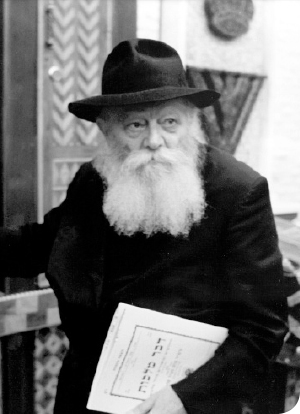From Chapter Eight of Rabbi Shloma Majeski’s Likkutei Mekoros (Underlined text is the compiler’s emphasis.)
 30. My revered father in-law, the Rebbe, comments on the verse, “As in the days of your exodus from Egypt I shall show them wonders,” that the exodus from Egypt was the beginning of and the energy that fuels the future redemption. Indeed, the future redemption already began from the time of the exodus from Egypt. And it is understood that also now, in the time of exile, there is the concept of redemption.
30. My revered father in-law, the Rebbe, comments on the verse, “As in the days of your exodus from Egypt I shall show them wonders,” that the exodus from Egypt was the beginning of and the energy that fuels the future redemption. Indeed, the future redemption already began from the time of the exodus from Egypt. And it is understood that also now, in the time of exile, there is the concept of redemption.
The Talmud discusses this matter directly: When a cow mooed, they said that the Beis HaMikdash had been destroyed; when it mooed a second time, they said that the savior of the Jewish people had been born. That is, at the time of the destruction, the savior of the Jewish people was born.
This concept also sheds light on the words of the Gemara on the name of Moshiach: “The School of Rebbi Chanina said Chanina is his name … Other Talmudic sages said that Menachem ben Chizkiya is his name” – each school would endeavor and seek to equate the name (of their Rebbi) with “Moshiach,” which is an acronym for “Menachem, Shilo, Yinon, Chanina” [spelling the word “Moshiach”], for even in the time of exile there is Moshiach.
31. My revered father in-law, the Rebbe, had the custom on Acharon Shel Pesach to dance a “Moshiach Dance.”
This expression, “Moshiach Dance,” can be interpreted in two ways: a) a dance that pertains to and prepares for Moshiach; b) a dance in which Moshiach himself participates.
Since the determining factor here is the interpretation, we shall interpret it in a way that suits us, according to the second approach – that Moshiach is already present [in the world] and participates in and dances his dance together with us…
Therefore, we shall now sing a joyous song, “Nieh Zshuritzi Chloptzi.” But first we shall sing the Alter Rebbe’s Niggun (as is known that sometimes, before my revered father in-law, the Rebbe, the Chassidim would first sing the Alter Rebbe’s Niggun and then Nieh Zshuritzi Chloptzi, and sometimes Nieh Zshuritzi Chloptzi first and the Alter Rebbe’s Niggun thereafter). And to this niggun, Nieh Zshuritzi Chloptzi, we shall dance the Moshiach Dance.
(The Rebbe shita told the crowd to sing “a heartfelt niggun,” in preparation for the Alter Rebbe’s Niggun. The Chassidim then sang the Alter Rebbe’s Niggun, repeating the forth stanza eight times, and the Rebbe continued with the following.)
Now we shall sing Nieh Zshuritzi Chloptzi with great joy and while dancing the Moshiach Dance.
Corresponding to the two interpretations, everyone should imagine on his own, Moshiach – regarding whom it said, “he shall be exalted and elevated, and he shall be extremely lofty,” higher than Adam HaRishon (even as he was prior to the sin of eating of the Tree of Knowledge) – dancing together with us, for this dance is a preface to and relates to Moshiach.
(They sang Nieh Zshuritzi Chloptzi and the Rebbe shlita motioned with his holy hand that ever person should dance in his own place. The Rebbe also danced in his place with tremendous joy.)
The Rebbe shlita then recited Birkas HaMazon on a cup of wine. Following Maariv, the Rebbe said that the joy should extend throughout the entire year.
(From the address of Acharon Shel Pesach 5712; Toras Menachem 5712, pg. 157-158)